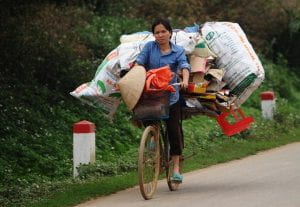GENDER and THE ENVIRONMENT DEBATE
- What ways are women in the global South affected by environmental degradation?
In Sub-Saharan African countries women spend about 16million hours a day collecting drinking water. The UN Water pdf informs us that inadequate sanitation and hygiene facilities at home and places of work and education, coupled with unsafe drinking water often leads to women and girls leading less safe and productive lives. Because they are often the water collectors- which is often arduous and time consuming, make them targets for attacks while en route for the water and or to use the open toilet. This scarcity or inaccessibility to water, impedes women’s hygiene needs during menstruation and pregnancy.
- Central different perspectives.
(a)Ecofeminism makes visible the “woman -nature connection…” (Warren. Introduction to Ecofeminism)
Hobgood-Oster in “Historic and International Evolution” states that Ecofeminists claim that patriarchal structures justify their dominance through categorical dualistic hierarchies -mind/body, male/female, culture/nature. “These oppressive structures “, she continues, “manifest their abusive powers by reinforcing assumptions of these binaries, which must be dismantled, otherwise, humanity remains divided against itself. Oppression of the natural world of women by patriarchal power structures need examination.” (3) “This sex gender nature difference reveals in a different consciousness in woman than man toward nature” is because the female’s body experience of reproduction situate woman differently than man with respect to nature.” This stems from the western dominant masculine forms of experiencing the world, through ‘objective’ or ‘scientific’ approach. (Warren) As realistic as this speciality and position seem, the critics question “the woman and nature link, the core of EcoFeminism, because it is essentialist in nature.” (Hobgood-Oster, 12)
(b)Agarwal’s description of woman’s relationship with nature is not one of domination by man. In “The Gender And Environment Debate: Lessons from India” Agarwal “suggests that woman’s and man’s relationship with nature is rooted in material reality, in their specific forms of interaction with the environment.” Agarwal reminds us “poor peasant and tribal women are responsible for fetching fuel and fodder the main cultivators, acquire special knowledge about species varieties and processes of natural regeneration in their everyday interactions with nature.” (126) “This knowledge,” she adds, “is passed on to them by their mothers. They could be viewed as both victims of the destruction of nature and repositories of knowledge about nature in ways distinct from men of their class.” (126) It therefore stands to reason, “on the basis of their experiential understanding and knowledge, they could provide a special perspective on the process of environmental regeneration.” (127)
- Most appealing perspective.
In India a variety of essential items are gathered by rural households from the village commons and forests for everyday personal use and sale…” (Agarwal. 127) Agarwal gave a fuller description and better understanding of the lives of tribal women. The western writers especially Hobgood-Oster, and to a lesser extent Warren, fail to give a working description of women working in nature dominated by men, there was no group they focused on. Both focused on too many authors, and their many publications and offered snippets of what this domination means without offering an alternate explanation. The women’s knowledge of nature by Agarwal was informative, and surprising. The western writers were very focused on scholarship- even Warren’s list of 8, more informative than Hobgood-Oster, yet lacked concrete examples of this core of Ecofeminism. Agarwal’s 40 pages were illuminating.
A woman’s work is never done. (my interpretation)


Hello, reading your blog what really got me was your interpretation of these readings. I agree with your interpretation but I also do believe that their is unfairness in that statement. We as women for some odd reason are always held responsible for grown men, mostly… not always. At the end of the day there are just some things that end up being our problem, or responsibility (however you decide to look at it), that we had nothing to do with in the beginning. Unfortunately, in some cultures men are raised to learn that the women around him must serve and cater to him when he is perfectly capable of serving himself. I do believe that in some cases men, especially men that hold a high power position fail to admit that at the end of the day they cannot do it alone, even if they need another man instead of a woman to solve the problem.
Greetings J. Please explain further the line ” I agree with your interpretation their is unfairness in the statement.” I would certainly clarify.
Thanks.
bridget.